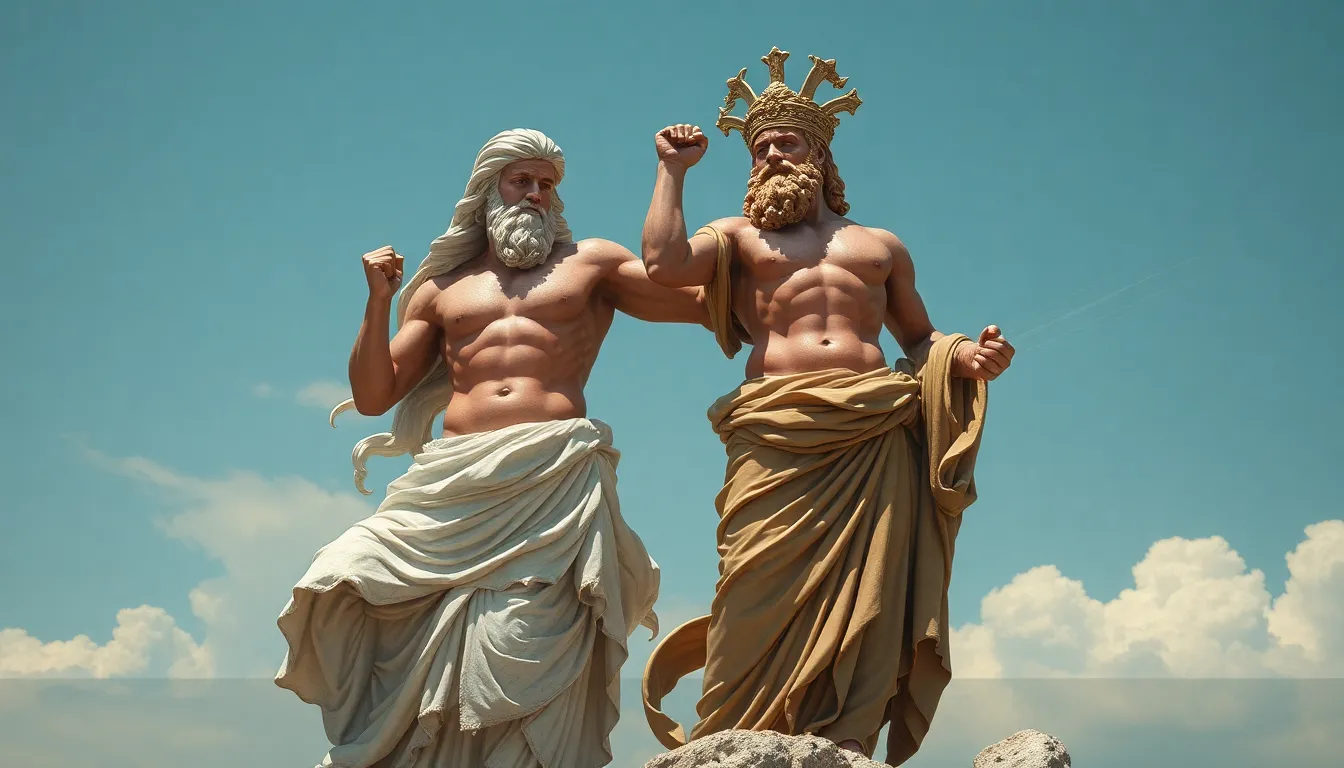The Hidden Truths Behind Mortal Relationships with Greek Gods
I. Introduction: The Allure of Divine Connections
Greek mythology is filled with captivating tales of gods, goddesses, and their interactions with mortals. These stories, rich in detail and emotion, reveal the complexities of human relationships and divine interventions. The relationships between mortals and deities serve as a crucial element in ancient narratives, highlighting themes of love, power, tragedy, and redemption. Through these interactions, we gain insight into not only the lives of the characters but also the values and beliefs of ancient Greek society.
II. The Nature of Greek Gods: Human Traits and Flaws
The Greek gods are often depicted with remarkably human traits, showcasing a blend of divine power and human flaws. Unlike the omnipotent deities of other mythologies, Greek gods exhibit a range of emotions including jealousy, love, anger, and compassion. This anthropomorphic nature makes them relatable to mortals, allowing for deeper connections in their narratives.
- Emotions: Greek gods experience love, hate, and jealousy, often leading them to act unpredictably.
- Desires: Many gods pursue their desires relentlessly, leading to both comedic and tragic outcomes.
- Moral Complexities: The gods are not bound by a moral code; their actions can be both noble and cruel.
III. The Consequences of Divine Relationships
The relationships between mortals and gods often come with significant rewards and dire consequences. Mortals who attract the favor of a deity may receive gifts and protection, while those who incur their wrath might face severe repercussions. Through various myths, we can explore these dynamics in detail.
Case Studies: Famous Mortal-God Pairings
- Hercules and Zeus: Hercules, born from Zeus and a mortal woman, faces immense challenges. His divine heritage gives him strength, but also leads to jealousy from other gods.
- Persephone and Hades: The abduction of Persephone by Hades creates a cycle of life and death, representing the changing seasons and the duality of existence.
IV. Forbidden Love: The Taboo of Mortal-God Relationships
Mortal relationships with gods are often fraught with societal taboos. The concept of forbidden love plays a significant role in Greek mythology, as many tales depict tragic romances that challenge the established order.
- Societal Norms: Interactions between mortals and gods often defy social expectations, leading to dramatic consequences.
- Tragic Love Stories: Many relationships end in tragedy, highlighting the risks of pursuing love that transcends mortal boundaries.
V. The Role of Fate and Destiny
Fate, or Moira, is a central theme in Greek mythology, often dictating the lives of both mortals and gods. The intertwining of fate and divine will creates a complex tapestry of relationships where characters struggle against predetermined outcomes.
- Understanding Moira: Moira represents the fate allotted to each individual, influencing their choices and relationships.
- Divine Will vs. Free Will: Mortals often grapple with the tension between their desires and the paths laid out by the gods.
VI. The Impact of Mortal-God Relationships on Greek Culture
The relationships between gods and mortals have significantly influenced Greek culture, from art and literature to religious practices. These stories not only captivated audiences but also shaped moral and ethical views in ancient Greece.
- Art: Many artistic representations depict mortal-god interactions, showcasing the beauty and tragedy of these relationships.
- Literature: Epic poems and plays often explore themes of love, betrayal, and redemption through divine interactions.
- Religious Practices: Worship and rituals often centered around the stories of gods and their mortal lovers, emphasizing the connection between the divine and human experience.
VII. Modern Interpretations and Representations
In contemporary literature and media, the dynamics of mortal-god relationships continue to resonate. Modern retellings often explore these themes through new lenses, making them relevant to today’s audience.
- Literature: Many authors have reimagined Greek myths, focusing on the emotional depth of the characters and their relationships.
- Media: Films and television shows often depict these stories, highlighting the timeless nature of love and conflict.
- Societal Relevance: The themes of love, power, and destiny resonate with modern audiences, reflecting ongoing struggles in human relationships.
VIII. Conclusion: The Enduring Legacy of Mortal Relationships with Greek Gods
The stories of mortal relationships with Greek gods offer profound insights into human nature and the complexities of love, power, and destiny. These narratives have endured through the ages, providing timeless lessons about the human condition. As we reflect on these myths, we recognize their significance not just in ancient Greece, but in our understanding of relationships today. The allure of divine connections continues to captivate our imagination, reminding us of the fragile boundaries between the mortal and the divine.




